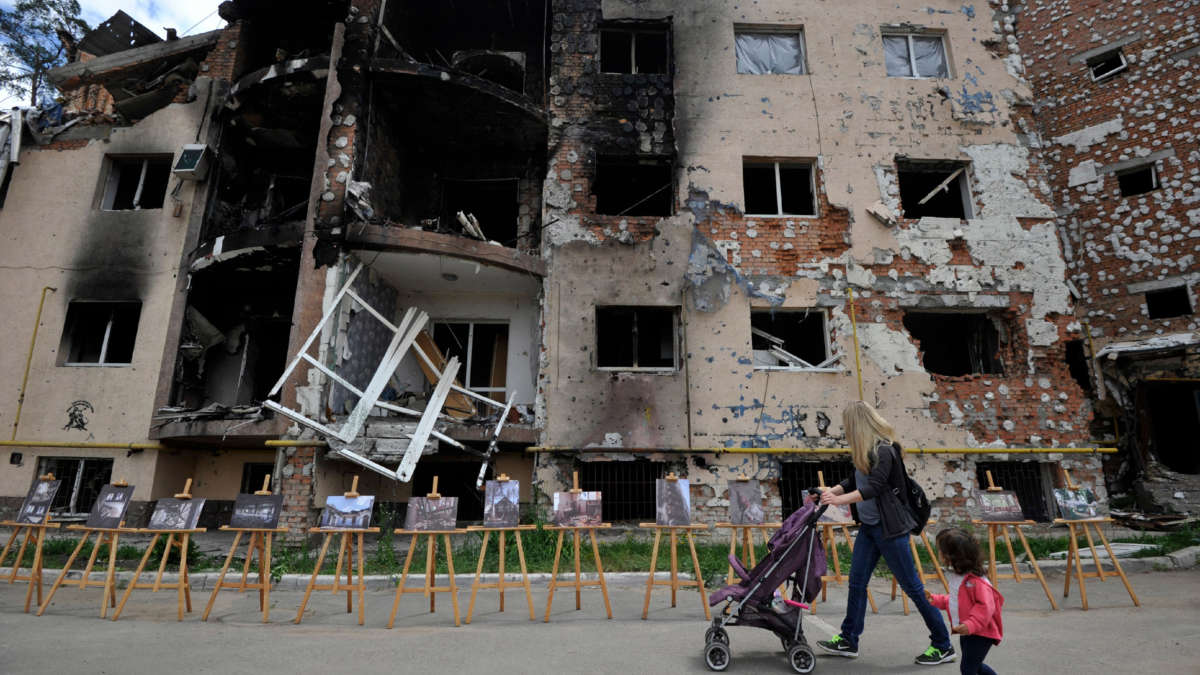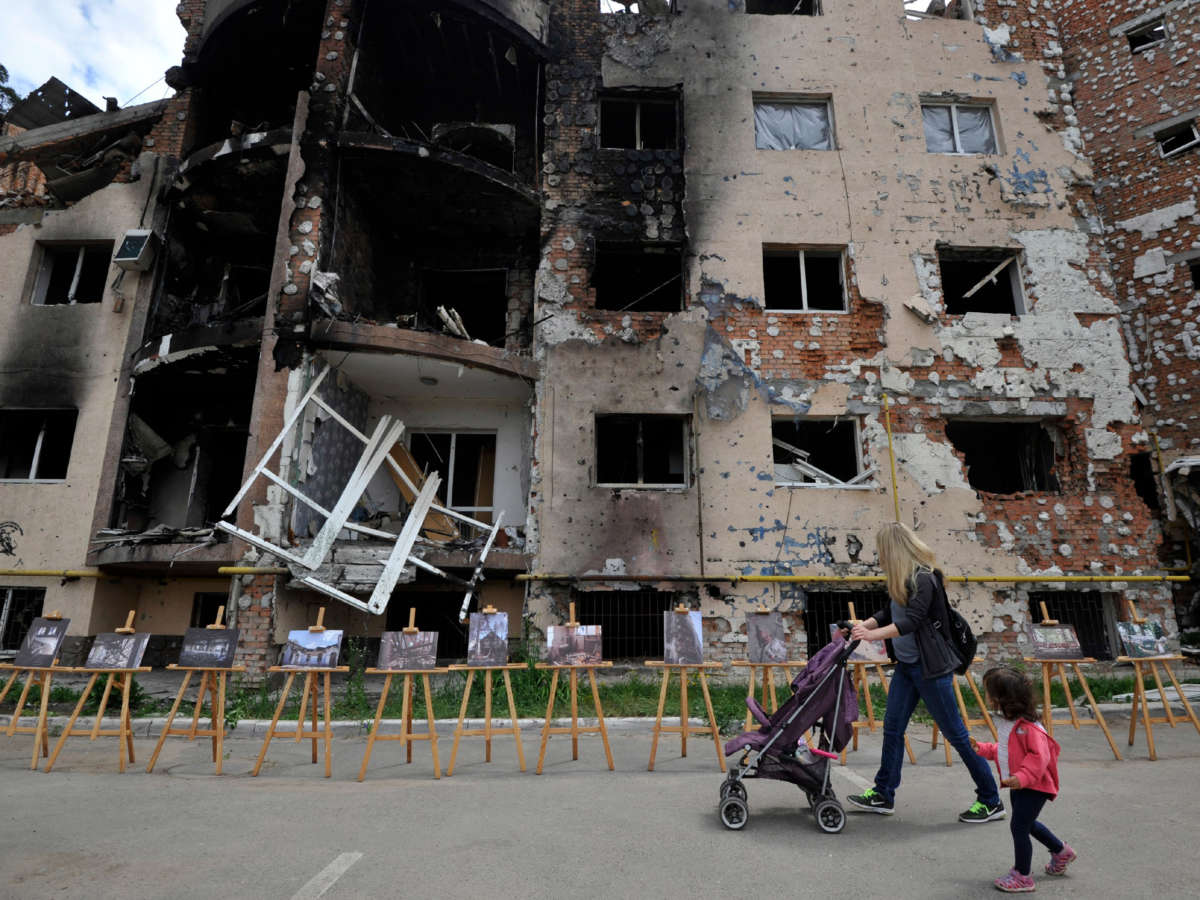

It’s been almost four months since Russian President Vladimir Putin invaded Ukraine. Peace talks have been ongoing stalledSunday’s warning from NATO’s chief diplomat was that war could drag out for many years.
“We have to prepare for it to last for years,” NATO Secretary General Jens Stoltenberg toldGerman newspaper Bild am Sonntag.
“We must not let up in supporting Ukraine. Even if the costs are high, not only for military support, but also because of rising energy and food prices,” he continued. “But: That is no comparison to the price that Ukrainians have to pay every day with many lives.”
“And if Putin learns from this war that he can simply carry on as he did after the 2008 war in Georgia and the occupation of Crimea in 2014,” Stoltenberg added, “then we will pay a much higher price.”
Stoltenberg’s comments followed Friday reportingBy The Washington Post that “the United States and its allies are making preparations for a prolonged conflict in Ukraine.”
“In a sign of how Western weaponry has the potential to pull the West deeper into the war, a U.S. defense official on Friday confirmed that a U.S.-made Harpoon anti-ship missile had struck a Russian tugboat in the Black Sea.” @missy_ryan @DanLamothe https://t.co/rbUtYRO5pU
— Quincy Institute (@QuincyInst) June 19, 2022
U.S. President Joe Biden announced Wednesday that Washington “is providing another $1 billion in security assistance for Ukraine, including additional artillery and coastal defense weapons, as well as ammunition for the artillery and advanced rocket systems that the Ukrainians need to support their defensive operations in the Donbas.”
The Post pointed out that “European nations including Germany and Slovakia unveiled their own shipments of advanced weapons, including helicopters and multiple-launch rocket systems.”
Critics continue to warnTed Snider, an anti-war columnist wrote this: Responsible statecraft earlier his month, that sending more advanced weapons which threaten Russia “could not only prolong the war and cause more suffering for Ukrainians by extending the current battlefield, it could also, ultimately, put Ukraine in a weaker position at the negotiating table.”
Taking aim at Massachusetts’ all-Democrat congressional delegation in particular, Jason Pramas of DigBostonThis month spotlighted the lack of public discussion or debate about pouring billions of dollars into Ukraine, including among “politicians who have been critical of the outrageously huge U.S. military budget and have fought hard for increasing the budget for domestic social programs benefiting working families instead.”
Pramas wrote about it. Common Dreams:
The Mass is not to be criticized. A $40 billion package is being criticized by the Mass. It is going to pump far more cash in the treasuries major American military contractors than it will into urgently needed humanitarian aid for Ukraine.
Is it okay to give so much money to a foreign country involved in a regional war, however justified, when so many people are still not being met here in the United States?
Is it safe to provide more powerful, longer-ranged and more powerful weapons systems for the Ukrainian military, when their use could prompt a nuclear reaction from Russia that would result in a global conflagration that would destroy human civilization?
Evidently, not.
In a radio interview, Noam Chomsky, an American scholar and dissenter, said the following: noted that the U.S. and other NATO states sending weapons to Ukraine isn’t a new development.
“From 2014, the U.S. and NATO began to pour arms into Ukraine — advanced weapons, military training, joint military exercises, moves to integrate Ukraine into the NATO military command. There’s no secret about this. It was quite open,” Chomsky said, adding that Stoltenberg recently “bragged about it.”
“So, criminality and stupidity on the Kremlin side, severe provocation on the U.S. side. That’s the background that has led to this,” Chomsky said of the war. “Can we try to bring this horror to an end? Or should we continue to perpetuate it. Those are the choices.”
“There’s only one way to bring it to an end. That’s diplomacy,” he argued. “Now, diplomacy, by definition, means both sides accept it. They don’t like it, but they accept it as the least bad option.”
“Since the invasion, the US has poured more fuel on the fire with #weapons, sanctions and reckless speech. Instead of encouraging diplomacy #BidenAdministrationAre you prolonging your life? #war that is endangering the entire world” https://t.co/DAd8QTi45O #UkraineRussiaWar
— World BEYOND War (@WorldBeyondWar) June 13, 2022
In the absence of diplomatic negotiations — which Maria Zakharova, spokesperson for the Russian Foreign Ministry, publicly blamed on the United States earlier this week — bodies continue to stack up in Ukraine. The New York TimesSaturday publishedA special report on war-related deaths.
About a fifth of Ukraine is now under Russian control, and “the Ukrainian army is taking heavy losses. By the government’s own estimates, as many as 200 soldiers are dying every day,” the Times reported. “In April, Western countries estimated that Russia had lost about 15,000 soldiers in Ukraine; on Friday, Ukraine put the estimate at 33,000.”
The newspaper also addressed the unconfirmed but significant civilian death toll.
The latest updates to the website include: Office of United Nations High Commissioner for Human RightsAccording to reports, 4,509 civilians were killed in the conflict. However, it is clear that many more civilians have been killed. Ukraine’s chief of police, Ihor Klymenko, said this past week that prosecutors had opened criminal proceedings “for the deaths of more than 12,000 people who were found, in particular, in mass graves.”
And in Mariupol, the Black Sea city flattened by Russian bombardment, Ukrainian officials in exile have said that examinations of mass graves using satellite imagery, witness testimony, and other evidence have led them to believe that at least 22,000 were killed—and possibly thousands more.
“Children are not protected from the indiscriminate violence,” the Times noted. “The United Nations’ agency for the protection of children in emergency situations has estimated that at least three children have died each day since the war started in February. That is only an estimate.”
The horrible cost of war: so many lives lost. (Lost is not the correct word. Taken, lives taken. By the thousands.
“I feel numb,” said Antoniy, a morgue worker in Lviv, “Even when someone is telling me a joke that I know is funny, I can’t laugh.”https://t.co/sRybSgHPn9
— Michael Slackman (@meslackman) June 18, 2022
Amnesty International, too has a new report highlighting civilian deaths. The human rights group declared Monday that Russian forces’ use of cluster munitions in Kharkiv, Ukraine’s second-largest city, “constitute war crimes.”
“The repeated use of widely banned cluster munitions is shocking, and a further indication of utter disregard for civilian lives,” said Donatella Rovera, Amnesty’s senior crisis response adviser. “The Russian forces responsible for these horrific attacks must be held accountable for their actions, and victims and their families must receive full reparations.”
